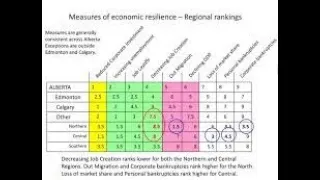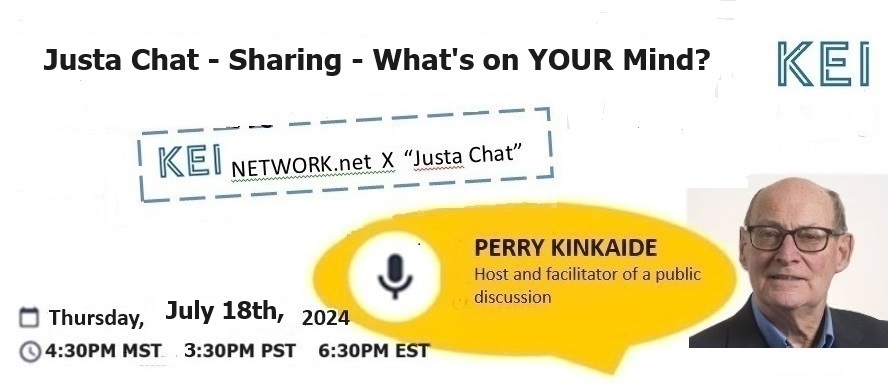
The Failed Welfare State is Empowering the Right reproduced from Troy Media HERE
The rise of right-wing politics is a response to the unmet promises of the welfare state
See also "Why So Much Anger" HERE ... balllots not bullets!
The rise in extreme right-wing politics is a reaction to the post-Second World War globalization of the welfare state. This shift represents a growing disillusionment with the promises of the welfare state, which was expanded to counter the allure of communism. Nation-states took on roles traditionally managed by families, communities, and religious institutions but without the corresponding accountability
What are the welfare state’s shortcomings?
1. Unaffordability: The welfare state has proven to be financially unsustainable. There are limits to how much taxation and debt a nation can endure. As public debts rise and tax burdens become heavier, the financial strain on people and the economies becomes evident. People are increasingly aware that the welfare state cannot endlessly provide without consequence.
2. Complicity: The welfare state requires a passive, compliant citizenry – people willing to tolerate waiting … and waiting. However, people are not naive; they recognize when the system takes more than it gives. This growing awareness has led to a backlash; people feel they are losing their agency and independence in exchange for government support.
3. Failing Systems: The welfare state is failing to deliver on its promises. Standards of care and service are deteriorating, exacerbated by an aging population and a declining birth rate.
4. Fragile Future: The baby boom generation’s retirement has placed immense pressure on health and social services, while low birth rates mean fewer young people are available to support these systems. Priority has also shifted away from youth and education, further jeopardizing the future.
In response to these shortcomings, many have turned to right-wing policies emphasizing individualism, personal responsibility, and family and community-based support. This shift represents a desire to return to a system where individuals and smaller community structures play a more significant role in addressing social needs.
However, this rightward shift has created a vacuum, increasingly filled by “woke” ideologies on the far left. These ideologies often emphasize identity politics, social justice, and cultural changes, which can be polarizing and divisive.
The current political landscape is characterized by a lack of moderates. The extreme positions on both the left and right dominate the discourse, leaving little room for centrist views. This polarization means that practical, balanced solutions are often overlooked in favour of more ideologically driven agendas.
If we are to address the failings of the welfare state and the polarizing tendencies of both extreme right-wing and left-wing ideologies, there is a need for a new moderate approach. This approach should combine the strengths of both sides while avoiding their extremes.
A moderate approach would recognize the importance of social supports but strive to make them financially sustainable. This could involve reforming welfare programs to be more efficient and targeted, reducing waste, and ensuring that those in “genuine” need receive help.
Encouraging individual responsibility and community involvement is crucial, but this must be done without dismantling essential social safety nets. Programs need to prioritize empowering people to take control of their lives and contribute to their communities.
Both the welfare state and community-based support systems must be accountable and transparent. This is a significant challenge: re-engaging citizens in decision-making processes and establishing oversight to ensure services effectively meet people’s needs. We must stop fostering dependency and instead promote initiative.
Bridging the gap between the extremes requires promoting dialogue and understanding. Encouraging conversations between different ideological groups can help find common ground and foster co-operation.
The broad sweep to the right in global politics is a response to the unmet promises of the welfare state. This shift highlights the need for a new, balanced approach that combines the strengths of both personal individualism and public social support. By promoting sustainable social programs, empowering individuals, ensuring accountability, and fostering dialogue, it is possible to create a political environment that avoids the extremes and addresses the needs of disadvantaged people.
The first challenge is finding and supporting moderate voices – leaders who can navigate this complex landscape and offer practical, effective solutions.
The TOP 30 Webinars and Newsletters
The three most popular topics ranked #16 - 18 among the top 30 KEI Network's newsletters and webinars undescore a focus on the interplay between economic stablity, ethical and social discourse, and the preservatioin of national values within the context of contemporary challenges ... challenges that just don't seem to be going away:
-
Economic Resilience and Sector Analysis. The first entryRanked #16 of 30 focuses on Alberta's economic resilience, highlighting the effectiveness of its innovation ecosystem and reviewing the resilience of various sectors including public services, professional services, and industries.
-
Free Expression and AI Ethics. The second entry Ranked #17 discusses the conflicting nature of free expression on university campuses and the ethical dilemmas posed by generative AI technologies like ChatGPT. It touches on the paradox of critiquing AI for both lacking human qualities and for being too expressive when it exhibits human-like behavior. This extends to a broader conversation about tolerance and discourse within academic settings.
-
National Identity and Public Policy. The third entry Ranked #18 centers on Canadian national identity and public policy, discussing foundational values, historical relevance, and addressing contemporary social conflicts. It emphasizes the importance of cherishing Canada's heritage and factual discourse in public policy.
Ranked #16. Episode #3 (Fall 2020). Testing Alberta's Economic Resislience - SECTORS. Access at KEnetwork.net Newsletter Issue #13 Published Nov 19, 2020. Webinar Nov 23rd, 2020 Video link https://youtu.be/ItH-9Hf3UsQ
Features a brief review of the previous two episodes highlighting the overall economic resilienceof Alberta and fhe effectieness of it's Innovation Ecosystem as of the Fall of 2020 and it's Regions followed by a more in-depth review of how each of the Sectors view the Province's resilience: Public Services, Professional Services, and Industries.

#17. Campuses Conflicted over Free Expression. Access at KEInetwork.net Newsletter Issue #106 Published Feb 19, 2023. Webinar Nov 23rd, 2023 Video link https://youtu.be/9RZ0WbWUSJw
Recently we have discussed generative AI - ChatGPT specifically. its features and implications. Microsoft's Bing - a rival to ChatGPT, has been heavily criticized and reedited by Microsoft after it - the machine, became too human, expressing anger and frustration in its text with users who dared to challenge it. Yet on one hand we critique AI for not being human and then chastise it for being expressive. This very same conflict appears to be playing out on campuses today. Universities have been viewed as the bastion of free expression; yet of late we hear that students have become intolerant of viewpoints and discourse viewed as hurtful, disrespectful, making someone feel bad. In this webinar we explore the status of free expression on campuses and discuss the excesses of neo-liberalism and options for reform.

#18. The Attack on A Free and Flouishing Canada Today - and what to do about it. Access at KEnetwork.net Newsletter Issue #122. Published Jun 11, 2023. Webinar Jun 15, 2023 Video link https://youtu.be/JZp8MVr-5LQ
The host - Perry Kinkaide interviews Mark Milke the President of the new Aristotle Foundation for Public Policy. Mark is also the editor of the recent book The 1867 Project - Why Canada should be cherished not cancelled. They discuss the foundational values defining Canada, the relevance of history, facts, and reality in addressing contemporary social and anti-social conflict.



ZOOM https://us02web.zoom.us/j/82390691947

Editor@KEInetwork.net

Visit KEInetwork.net